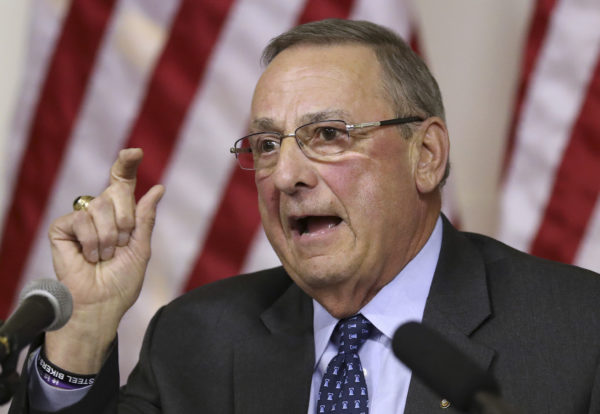
Good morning from Augusta, where the 10-day window for Gov. Paul LePage to veto bills enacted by the Legislature closed on Monday, possibly solidifying lawmakers’ agenda when they return on Wednesday.
LePage vetoed six more bills before Monday’s deadline, increasing the list to 20 he has tried to block in recent days. Each vetoed bill requires a two-thirds override vote Wednesday in both the House and Senate if it is to survive.
Lawmakers will chew through the vetoes on Wednesday, but it’s unclear how they will address lots of unfinished business. Also expected Wednesday is a vote about whether to extend this year’s legislative session to deal with a number of other bills awaiting final action or to formally adjourn the second regular session, raising the possibility of a special session later this year.
When the Legislature was last in on April 18, House Republicans blocked the extension of the session because House Democrats kept delaying action on Republican bills while refusing to entertain a proposal to slow the increase in Maine’s minimum wage, which is currently $10 an hour and will rise to $12 by 2020. The Senate had voted unanimously to keep working
House Speaker Sara Gideon, D-Freeport, is pushing for an extension of the current session, partially because it would be less expensive. Extending the current session would cost $23,381 the first day and $17,745 for additional days in the same week, while a special session would cost $37,081 for the first day and $31,445 for subsequent days in the same week. Those figures don’t include pay for legislative committee clerks and the cost of advertising and printing. The difference is because lawmakers would be paid for a special session but not an extension of the current one.
Another impasse centers on a tax conformity bill that’s a response to major changes made in the federal tax code last year. LePage and some Republicans are calling for roughly $111 million in tax cuts — and a net $88 million reduction in Mainers’ overall tax burden — while Democrats are advocating for a “revenue neutral” plan that wouldn’t affect how much money flows to state government.
Bond questions are usually a key topic late in the second session. But, after the budget committee spent a few days earlier this year sorting through a host of proposed borrowing suggestions, other conflicts have pushed aside debate over potential bond questions for voters to decide in November. Proposals to upgrade University of Maine facilities, a standard transportation maintenance bond and a plan to help ease student debt — which LePage touted again in one of his Monday veto letters — remain in limbo and will not move forward without legislative action.
After a 10-day cooling-off period, we’ll see if a sense of urgency to deal with so many unresolved issues can supplant the rancor that plunged the final hours of April 18 into deep partisan gridlock. This session has already featured many unexpected twists and turns, including Gideon and Democrats diving deep into procedural rules to extend the legislative session in the wee hours of April 19 by implication. Whether that holds is crucial for a number of bills left in the process, including the tax conformity bill, a usually routine but crucial education funding bill and dozens of other spending bills that have bipartisan support, which are essentially dead if the session adjourns without action on them or on a late maneuver to keep them on life support in case a special session is called.
The County is pleased to feature content from our sister company, Bangor Daily News. To read the rest of “LePage’s veto dance card is full but everything else is in flux as lawmakers prep for return,” an article by contributing Bangor Daily News staff writer Christopher Cousins, please follow this link to the BDN online.







